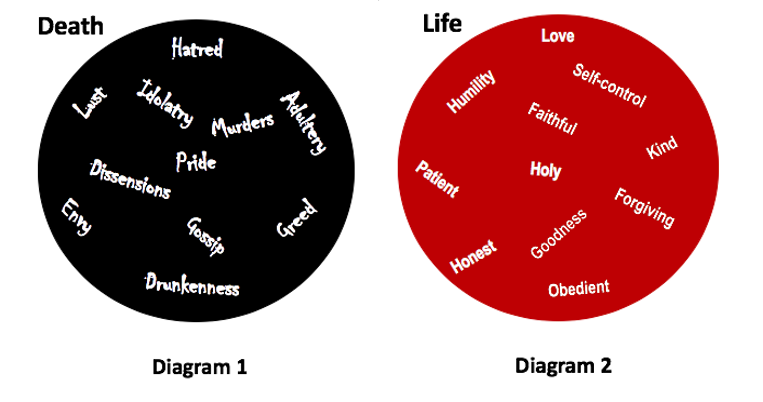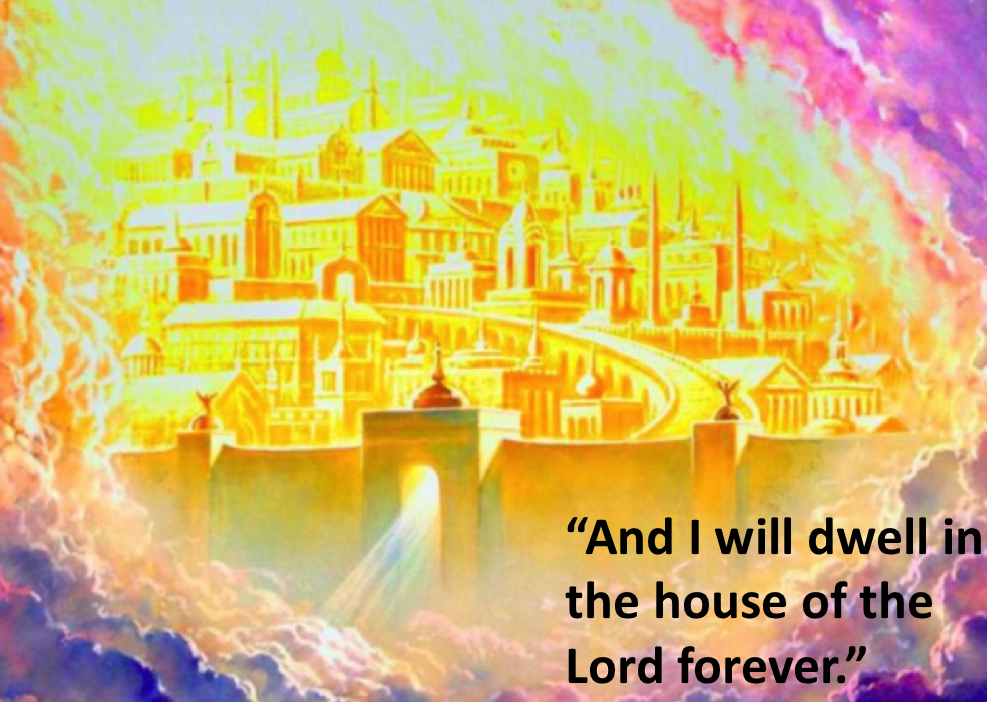“28 Do not marvel at this; for the hour is coming in which all who are in the graves will hear His voice 29 and come forth—those who have done good, to the resurrection of life, and those who have done evil, to the resurrection of condemnation.” John 5:28-29
Jesus not only claims to be equal with God the Father because He is the Son and the Savior, but also because HE IS THE SEPARATOR (John 5:27-30). Jesus will separate believers from unbelievers, and execute judgment on those without eternal life and bless those with eternal life. “…And has given Him authority to execute judgment also, because He is the Son of Man.” (John 5:27). Christ is qualified to judge humanity because as a human being, “the Son of Man,” He can understand the needs and viewpoints of people. Christ knows the pressures and the problems we face, therefore He knows clearly when we have reached the place where we are ready to give up depending on ourselves and are ready to depend on Him alone for eternal life.
“28 Do not marvel at this; for the hour is coming in which all who are in the graves will hear His voice 29 and come forth—those who have done good, to the resurrection of life, and those who have done evil, to the resurrection of condemnation.” (John 5:28-29). What a marvelous claim! Jesus says there is an hour coming in history when all the dead – the good and the bad – loving and unloving, murderers, rapists – all, shall come forth from the grave. He is going to empty the cemeteries of the world. Christ will ultimately determine the eternal destiny of all people.
What does “those who have done good” mean? Many people take this verse out of context and make up their own ideas about what it means to “have done good.” Some say if the good you have done in your life outweighs the bad, then God will let you into heaven. But that is not what this verse is saying. This is just a few verses removed from what Jesus said about the gift of eternal life in John 5:24. To“have done good,” of course, means to have heard Jesus’s Word and believed in Him who sent Christ. After a person trusts Christ for eternal life, God looks at their life and sees only the good things they have done, not the evil. How can this be? Because God has no charge against the believer (Romans 8:33). The believer is justified (“declared totally righteous”) of all things based on his or her faith in Christ (Romans 4:5). All our sin has been covered by the goodness of Jesus Christ. We are seen by God as completely holy and perfect because of His grace.
“Those who have done evil” – refers to the person who rejects Christ and remains in the sphere of “death.” This dark circle (see diagram 1) represents the non-Christian’s life filled with the darkness of sin. When God looks at the life of an unbeliever, all He sees are the evil things the unbeliever has done. There is no hint of righteousness in the non-Christian. All their good works, thoughts, and words are stained with sin (Isaiah 64:6). Their condemnation by God is total, just as the believer’s acceptance by God is total. So, when God looks at our lives before we believe in Jesus, all He sees are the bad things we have done.
But the Bible tells us that when a person hears God’s promise of eternal life and believes in Jesus, he is transferred into the sphere of “life” (see diagram 2). When God looks at our life after we believe in Christ, what does He see? He sees only the blood of His Son and His goodness in our lives. That’s why God can let us into heaven when we die if we have believed in Christ as our Savior.
Some people may object to Jesus’s judgment of the unbeliever. After all, how can a loving God send people to an eternity separated from God? “I can of Myself do nothing. As I hear, I judge; and My judgment is righteous, because I do not seek My own will but the will of the Father who sent Me.” (John 5:30). There will be no argument against Jesus’s judgment. No one will be able to complain that it is unfair, because it is the work of both the Father and the Son. Jesus does not judge others independently of the Father. He says, “As I hear, I judge.” Christ’s judgment is based upon what He hears His Father say so that His “judgment is righteous.” Jesus would never make a judgment that is different from His righteous Father’s.
God the Son who came among us and knows how we feel, is both our Savior and Judge. We decide which He is going to be by the response we make to the truth. It is Christ’s responsibility to determine a person’s eternal destiny. It is our responsibility to direct people to Christ. Hence, Jesus defends His equality with God the Father by making three claims:
He is the Son
He is the Savior
He is the Separator
Do you see Jesus as He is this moment? John is concerned that we have a correct understanding of who Jesus Christ is. From the very beginning of his gospel, he has told us that the Word (meaning Jesus) was God and that the Word became human flesh without ceasing to be God (John 1:1, 14). Jesus can never be put on a par with Mohammed, Buddha, Mahatma Gandhi, the virgin Mary, Moses or any other religious leader. But the truth is, much of the world has an image of Jesus as a good man with good teachings on how we are to get along with each other. If that were true though, He would never have gotten Himself in trouble, and He definitely would not have been crucified. You see, the facts don’t match up with that line of thinking.
What will you do with Jesus now? Perhaps your life is a mess. You have been trying to run your own life and it keeps getting messier. Are you prepared to meet Christ as a Judge or as your Savior? The only way you can face Him as your Savior is by coming to Him as a sinner, realizing He paid for all your sins on the cross and rose from the dead, and then trusting Him alone to save you. Have you done that? If not, is there anything keeping you from trusting Christ as your Savior right now? If not, simply take Him at His Word when He says, “Most assuredly, I say to you, he who hears My word and believes in Him who sent Me has everlasting life, and shall not come into judgment, but has passed from death into life.” (John 5:24).
The moment you hear Jesus’s promise of eternal life and believe in Him for it, you have eternal life. Would you do me a favor? The moment you are convinced you have eternal life after trusting in Jesus, would you let me know because I want to rejoice with you!!! Just send me a message under our “Contact Us” menu.
Prayer: Father, please make an eternal difference today by convincing those without Christ to trust in Him alone for the gift of eternal life. Thank You, Father… Please help those of us who know Christ to make Him known to others with our lips and our lives. In Jesus’s name. Amen.
.




